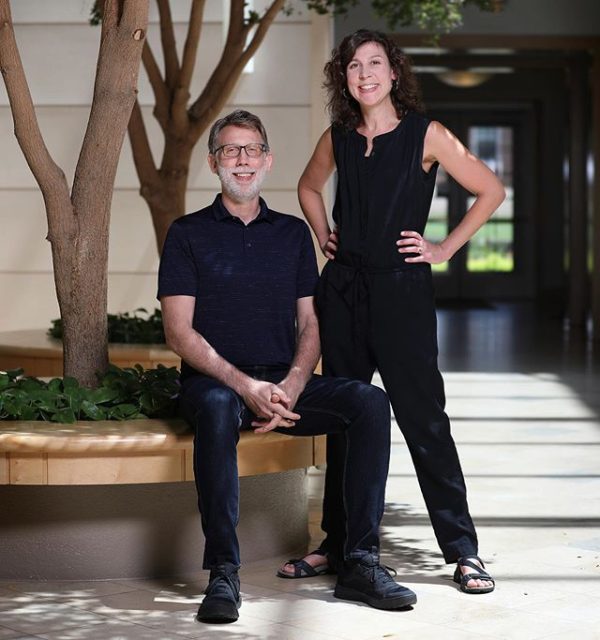Joelle Dietrick and Owen Mundy — spouses, artists and frequent collaborators — make art with a message. Their work deals with global trade, climate change and privacy issues in the Internet age.
This isn’t art you buy to hang over the living room sofa. This is art designed to make you think. And maybe even alter your behavior.
Their joint show, “The Speed of Thinking,” opens at Davidson College’s Van Every/Smith Galleries on Sept. 4 from 7-8:30 p.m. and runs through Sept. 25. Dietrick is an assistant professor of art and digital studies at the college. Although trained as a painter, she and Mundy are now mostly computer-based artists.
“I’ve been using digital tools for two decades,” Dietrick said. “But if I can ever find an excuse to paint, I will.”
Dietrick and Mundy are academics, and their work is cerebral. But it’s also relatable. Dietrick calls it “community-based art” that’s rooted in their interest in social justice. They “have long been interested in how our lives intersect with macro-economic, social and cultural trends, both in their individual and collaborative work,” according to the N.C. Arts Council website. They share a 2018-19 N.C. Arts Council Artist Fellowship.
Dietrick’s interests have led her to explore the human toll of global trade. Her 11-feet-by-21 feet site-specific mural, “Sherwin’s Wall,” (2012) looked at the housing crisis and the resulting rise in foreclosures. She created this work she calls “the one I’m proudest of” with a sense of irony, focusing on the paint company’s annual “color forecast.”
NY Art Beat wrote: “Sherwin’s Wall remixes commercial wall paint in color forecasts suggested for better living with fragmented foreclosed housing forms.” A lot of research goes into determining what color palette will be on point a few years from now. Dietrick’s statement piece made some viewers wonder how essential that research really is.
For “Sherwin’s Wall,” Dietrick used Sherwin Williams paint and applied it directly to the gallery walls. The mural was destroyed after the exhibition closed.
Read the full article from the Charlotte Observer here!




